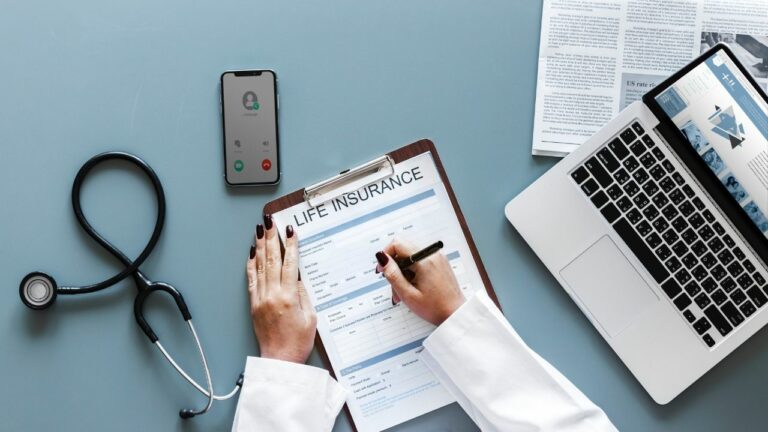6 Tips to Fully Secure Your Healthcare Business
The healthcare industry deals with massive amounts of private data every day. Patients entrust their valuable information to these businesses. But there is always a risk involved in gathering this data to provide a service.
Becker’s Hospital Review reported that there was at least one health data breach daily in 2016. These breaches compromised more than 27 million records.
The challenge of keeping up and protecting all this private data hasn’t gotten any easier. The Workgroup for Electronic Data Interchange (WEDI) said in a report that the attacks have become harder to identify, stop, and mitigate in terms of effects.
One of the reasons why healthcare businesses fall for data breaches is because they focus a large part of their budgets on other efforts, such as upgrading hospital equipment and electronic health records. In fact, according to Gartner, healthcare providers only spend 5% of their IT budget on security.
Your security system will need a more sophisticated approach to protecting itself from cyberthreats.
Here are 6 tips on handling such cyberattacks.
1. Increase Protection to Privileged Access
The most sensitive data is found on Electronic Personal Health Information (ePHI)—from social security numbers to birth dates. Unauthorized access can lead to identity theft. The cost of unprotected information is high: in 2017, Memorial Healthcare Systems had to pay $5.5 million to the US Department of Health and Human Services for not reviewing and examining the access to control and audit logs.
The result was unauthorized employees having access to private patient data.
As a healthcare provider, you need to build stronger protection and implement more secure and exclusive access to your ePHI. Experts confirm that protection of this access helps mitigate risks that come with ePHI theft.
2. Implement Strong Passwords and Regularly Change Them
Sixty-three percent of data breaches came from accessing passwords that were stolen, weak or still using the default, according to a Verizon report. Make sure all your employees create strong passwords and change them regularly. You can require this within the system employees use to ensure they execute the change and strong password standards on a regular basis.
3. Partner with a Healthcare Solutions Provider
Partnering with a R&D solutions provider with excellent data security policies in place can help you as well. Your partner will not only help you build a great team of highly-trained threat intelligence specialists, cybersecurity analysts, and IT security professionals but will also strictly observe data privacy measures so that both company and patient data are kept safe and secured. A good partner complies with GDPR and HIPAA, as well as other regulations depending on the state or country (if outside the US).
These security measures will benefit you in the long run as it is more cost-effective than constantly training your employees in cybersecurity measures.

4. Increase Data Protection on Smart Equipment
More and more hospitals are integrating smart devices such as mobile phones, laptops, and tablets in monitoring, processing, and transferring patient data. Make sure that the devices your staff uses can be closely monitored and have the necessary defenses such as firewalls and anti-virus protection.
These devices can also be connected to medical equipment on patients like insulin monitors or IV pumps for nurses and doctors to readily track. If your business depends on these devices, make sure they have firm and sound protection from data breaches, spyware, and whaling techniques. Otherwise, these devices getting hacked into can cause a data breach more extensive than if an ePHI was attacked.

5. Review the Security Compliance of Vendors and Other Suppliers
Your business transfers private data to other vendors and providers, such as insurance companies. You need to ensure that these companies are HIPAA-compliant and follow all the necessary security requirements for healthcare transactions and information transfers.

6. Implement Limited Network Access
Make sure all healthcare security systems like access control and pharmaceutical inventory management networks in place are installed after going through the right authorities, from the facility’s Chief Administrative Officer to the legal team. This ensures that anyone given access to your patient’s data has the authority to do so.
Cybersecurity is a top priority and need, especially for a healthcare business. However, many facilities may have challenges in finding the right people or resources to install, update, and maintain proper cybersecurity systems.
As an alternative, you can outsource this important asset and security requirements to a trusted global solutions partner. Global healthcare solutions providers are equipped with the right skills and the latest developments that help you prevent incoming cyber threats, which in turn protects your data and your patient’s identity.
Infinit-O is the trusted customer-centric and sustainable leader in Business Process Optimization to Small and Medium businesses in the Financial Services, Healthcare and Technology sectors by delivering continuous improvement through technology, data and people.

%20-%2010172019.png)
%20-%2010172019.png)
%20-%2010172019.png)






This site is protected by reCAPTCHA and the Google Privacy Policy and Terms of Service apply.